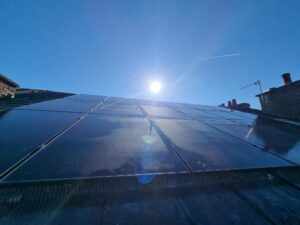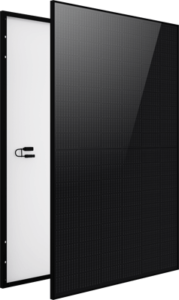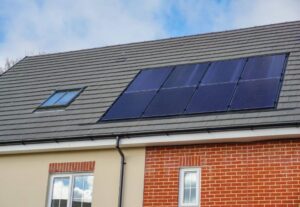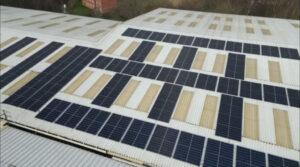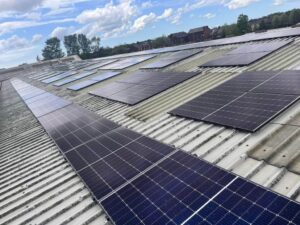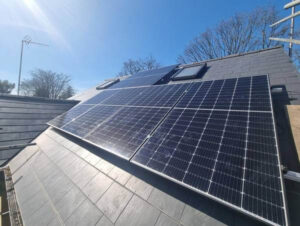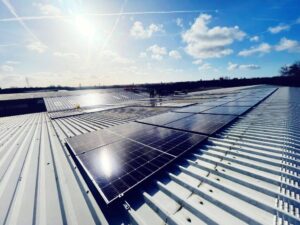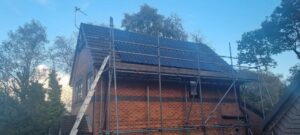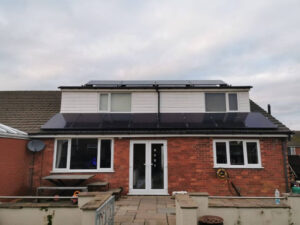In an era where environmental concerns and rising energy costs are at the forefront of homeowners’ minds, the prospect of investing in solar panels remains as alluring as ever. But as a conscientious homeowner, your decision to go solar in 2024 should be an informed one, pondering on whether the long-term benefits truly outweigh the initial costs. This detailed guide walks you through the key considerations of harnessing solar power, its practical implications, and the financial footprint of this forward-looking home renovation.
Understanding the Solar Investment Landscape
Before you hop onto the renewable energy bandwagon, it’s essential to demystify the solar investment landscape and the contextual factors that can influence your decision.
The Initial Outlay
One of the foremost hurdles for any homeowner venturing into the world of solar power is the upfront cost. The initial installation of a solar energy system can be significant, ranging from £5,000 to £13,000 for a typical domestic system, depending on various factors such as system size, the type of panels, batteries, and labour costs.
Return on Investment (ROI)
Despite the high initial outlay, solar panels can offer a steady return on investment in the form of reduced energy bills and potential government incentives. In the UK, the break-even time for solar panels typically ranges from 6-10 years. The savings over a 25-year period can be substantial, varying between £12,000 to £30,000, illustrating the enduring economic benefits that solar energy can afford.
Policy and Incentives
To ease the financial burden, there are a number of policies and incentives in place that reduce the cost of going solar. The Smart Export Guarantee (SEG) ensures that you receive payments for energy you export to the grid, the ECO4 Scheme provides for low-income households, and a Zero VAT policy on installations offers further financial reprieve.
The Nuts and Bolts of a Solar Installation
Once you’re acquainted with the financial dimension, it’s time to get down to the nuts and bolts of what installing solar panels actually entails.
Choosing the Right Solar Installer
Selecting a reputable solar installer is crucial. Look for MCS certification, which is a mark of quality for low-carbon energy technology products and installations. Ensure that the installer’s services align with your home’s specific energy needs, and don’t shy away from asking for testimonials or examples of their past work.
Factors Affecting Solar Panel Prices
Besides the installer’s fees, several other components contribute to the total cost of your solar system. The type of panels, size, additional components like battery storage, and the intricacies of the installation process can all impact the final bill.
Equipment and Space Considerations
Beyond the panels themselves, other components such as inverters and sometimes battery storage systems need to be accommodated on your property. Space considerations, aesthetics, and functionality are paramount in the positioning and installation of this equipment.
Long-Term Benefits of Solar Panels

The lure of solar is not just about savings; the long-term benefits are far-reaching and more subtler than you might have imagined.
Energy Independence and Security
Harnessing the power of the sun grants you a level of energy autonomy that is unparalleled. You’re less reliant on traditional energy sources, which can be subject to price fluctuations and geopolitical factors, ensuring stability and security for your household.
Sustainable Living
By generating your own electricity, you contribute positively to the environment. Solar panels are a tangible step towards sustainable living, as they help reduce your carbon footprint and overall energy demand, aligning with global efforts to combat climate change.
Upsurge in Property Value
Installing solar panels can enhance the value of your home. Properties with solar installations tend to sell for a premium and sell faster, as more and more buyers are drawn to energy-efficient homes.
The Drawbacks and Debates
While the benefits of solar panels are compelling, it’s crucial to also consider the drawbacks and ongoing debates regarding solar energy.
Upfront Cost Barrier
The primary deterrent for many homeowners is the high upfront cost. Even with incentives and financing options, the initial investment can be prohibitive for some.
Aesthetic and Space Concerns
The visible presence of solar panels on your roof may not sit well with all homeowners. Aesthetic concerns are valid, and it’s important to weigh the visual impact against the eco-friendly benefits.
Maintenance and Repairs
Solar panels are relatively low-maintenance, with annual service costs typically ranging from £100 to £200, and the occasional inverter replacement may cost between £500 to £1,500. However, maintaining your system is essential for its longevity and performance.
Future of Solar Technology
The debate on the future of solar technology is ongoing. With advances in efficiency and battery storage, the question of whether to invest in current technology or wait for future innovations remains.
Making an Informed Choice
Ultimately, the decision to invest in solar panels is a deeply personal one, influenced by your financial standing, environmental ethos, and long-term vision for your home.
Assess Your Energy Consumption
Analyzing your household’s energy consumption patterns is a crucial first step. Understanding how much energy you use and when can inform the size and type of solar system that best suits your needs.
The Appraisal of Solar Potential
Conduct a solar potential assessment to gauge the viability of solar energy for your home. Factors such as roof orientation, shading, and regional weather patterns can affect the efficiency of your solar panels.
Exploring Financing Options
From outright purchases to lease agreements and power purchase agreements (PPAs), there are various financing options available. Each has its own set of pros and cons, and it’s important to explore these in depth.
Environmental Consciousness and Policy
Your commitment to environmental causes might be a driving factor. Similarly, monitoring government policy and sustainability initiatives can provide further impetus toward making solar investments.
The Path Forward with Solar Panels
The decision to go solar is not black and white. It necessitates a thoughtful exploration of the factors at play and the implications for your home and lifestyle. With every year bringing about new advances and more robust support structures for renewable energy, the path forward with solar panels is one that is continuously unfolding. It’s an investment that paves the way for a greener, more efficient future, both for your home and the planet.
For more insights and personalized advice on navigating the solar investment landscape in 2024, reach out to reputable solar installers like us at Contact Renewables and Solar Ltd, we are dedicated to guiding homeowners through every step of their solar journey. Our expertise and customised solutions can help you chart a course toward sustainable energy and a brighter future – quite literally.



